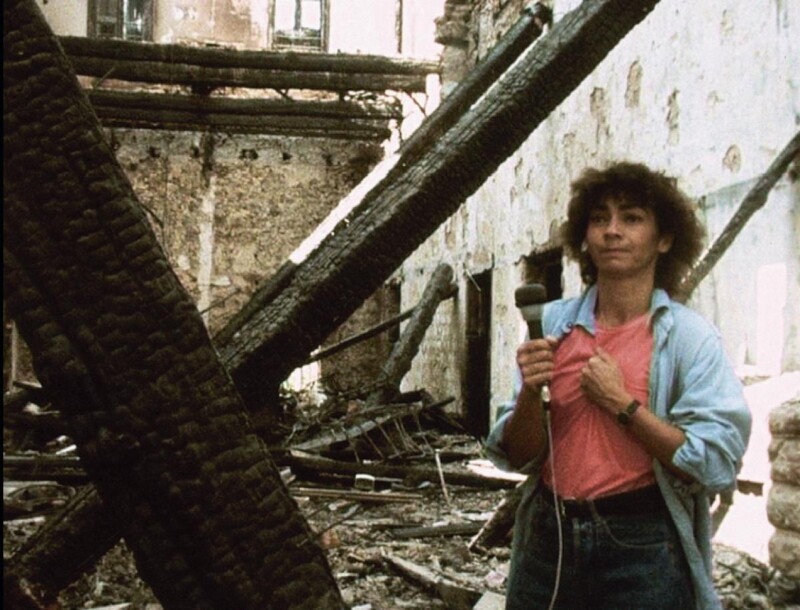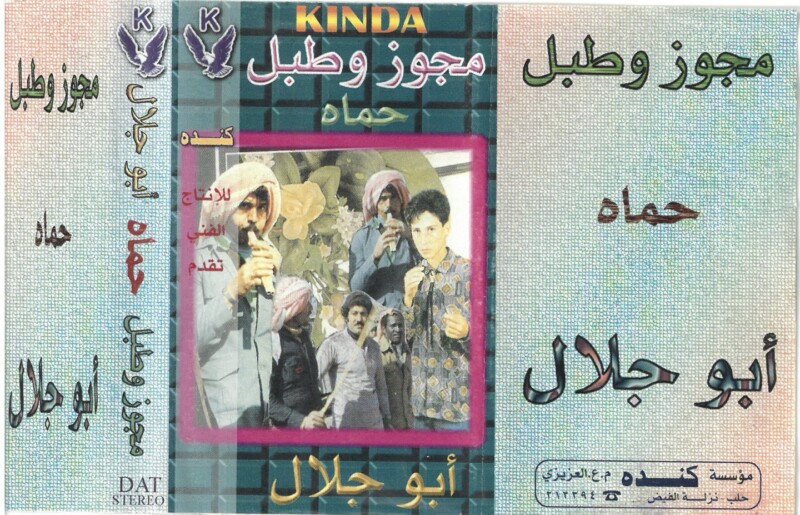
28.01.25, 20:30, Archives in Dialogue (Episode 3)
Archives in Dialogue is a space to gather, share and reflect on archival practices, art and memory. In being simultaneously recorded as a podcast, this space seeks to encourage an ongoing conversation, reaching into the realms of politics, poetry, and cinema. The dialogue looks specifically to artistic productions made in relation to the anti-colonial, anti- imperialist, anti-fascist political struggles of the 60s and 70s—a period with a rich and sustained filmic body of work that has been widely and systematically marginalized in film studies, in film curation and in the film industry. The absence, or discontinuity, of such political practices in today’s cinema can be understood and interrogated by looking at archival practices relating to these films and their related histories. By inviting practices of “unarchiving” archives, the dialogue aims to reconstruct collective histories and revive intersections of transitional solidarities. As such, a pedagogy begins to emerge from a horizontal reflection on practices and methodologies.
The third iteration of Archives in Dialogue invites 3 practitioners whose practice engages with aesthetically and politically subversive cinematic heritages. Anoushka De Andrade, Mathilde Rouxel and Ali Essafi, together with Mohanad Yaqubi, will be in dialogue to discuss the realities and challenges of dealing with a cinematic heritage that is politically in essence, both at the time of production and today. Each practitioner will be invited to reflect on their own practice and experiences, and to think towards a collective understanding of engaged political archiving practices, including on questions of restoration, re-distribution, and solidarity.
The “Archives in Dialogue” series is hosted by KASKcinema in collaboration with the Archival Sensations cluster at KASK & Conservatorium in Ghent. This event is part of Mohanad Yaqubi’s research Aesthetics of Transnational Solidarity Cinema at KASK & Conservatorium.
Archives of Archives: transnational solidarity film legacies (film programme), 20:30
Films are an archive of the future, and archives are the future of films. This program reflects on the intertwined relationship between images of the present and images of the past by looking into the archival collections of three exceptional filmmakers from the Global South alongside the archival practices that bring these collections into motion in the present.
Ahmed Bouanani, Sarah Maldoror and Jocelyne Saab allproduced films and narratives from within the anti-colonial struggles. In bringing their work into dialogue, this program aims to reflect on questions of methodology and cinematic propositions around images, sound, words, spaces, as well as on archive curation. the program bridges Ahmed Bounani’s eclectic cinematic language, the diasporic decolonial cinematic practices of Sarah Maldoror and Jocelyne Saab’s subjective gaze on revolutionary aesthetics and audience sensibilities.
- Mémoire 14, Ahmed Bouanani (1971 ‧ 30 min)
The film is an adaptation of a poem written by the director in 1967. Made from the film archives of the Moroccan Cinematographic Center, the film is intended to be a story of the French Protectorate in Morocco, seen through the myth-filled memories of Moroccans.
- And the Dogs Kept Silent, Sarah Maldoror (1978 ‧ 13 min)
Recording of excerpts from Aimé Césaire's play. The rebel recites, in front of his mother, a long, heartbreaking poem in which he protests slavery. Actors Gabriel Glissant and Sarah Maldoror perform in the Musée de l'Homme's reserves dedicated to black Africa. Statues and masks from the institution's collections punctuate the film, accompanied by Martinican landscapes.
- Beirut My City, Jocelyne Saab (1982 ‧ 37 min)
In July 1982 the Israeli army laid siege to Beirut. Just before the beginning of the siege, Jocelyne Saab sees her 150-year old childhood home situated in West Beirut go up in flames. Staying in spite of it in the besieged city, she films and asks herself: when did all this begin? While Jocelyne Saab’s images scroll to the rhythm of Roger Assaf's words and voice, every place becomes a historical site and every name a memory.
Guests Biographies
- Annouchka de Andrade has been the Artistic Director of International Film Festival of Amiens. A film festival focused on authors cinema and African and South American films. With over 30 years of experience, Annouchka has worked in international cultural cooperation with a strong focus on audio-visuals, cultural heritage and production in France, Spain, Columbia, Bolivia, Venezuela, Peru and Equator. She has provided technical assistance to Sarah Maldoror in the last 20 years.
With her sister Henda Ducados they have developed a project to preserve and share Sarah Maldoror and Mario de Andrade’ work. The path of two individuals who fought for African independence and cultural emancipation. Crucial to their work are films restoration of films, archiving of documents, correspondences, manuscripts and unknown screenplays etc.
- Ali Essafi was born and raised in Morocco, Ali Essafi studied psychology in France, then entered the world of filmmaking. His works as a director include "General, here we are", "The Silence of the beet fields", "Ouarzazate Movie" and "Shikhat’s Blues" which have been widely screened on the international circuit. Returning to Morocco he embarked on lengthy research on the north-african film & visual archives. These have been transformed into films, installations and publications. His film « Crossing the Seventh Gate » was premiered at the Berlinale (Forum) in 2017 and his last one Before the Dying of the Light will be premiered at IDFA (Amsterdam) in 2020. Ali Essafi is a member of several art & cinema organisations including the Oscars Academy.
- Mathilde Rouxel is a researcher and programmer. She holds a PhD in film studies and continues her research on the history of cinema in Arab countries at the IREMAM-CNRS of the University of Aix-Marseille as an associate researcher. She is artistic director of the AFLAM festival in Marseille and of the Franco-Arab film festival in Noisy-le-Sec (France). In 2019, she co-founded the Association Jocelyne Saab for the restoration and dissemination of the work of the Franco-Lebanese filmmaker. The association's work over the past six years has been to produce and publish artistic and scientific content around the work of Jocelyne Saab, and to train digital restoration professionals in Lebanon and Egypt to put the filmmaker's work back into circulation.
Cloquet
Godshuizenlaan 4
9000 Gent












